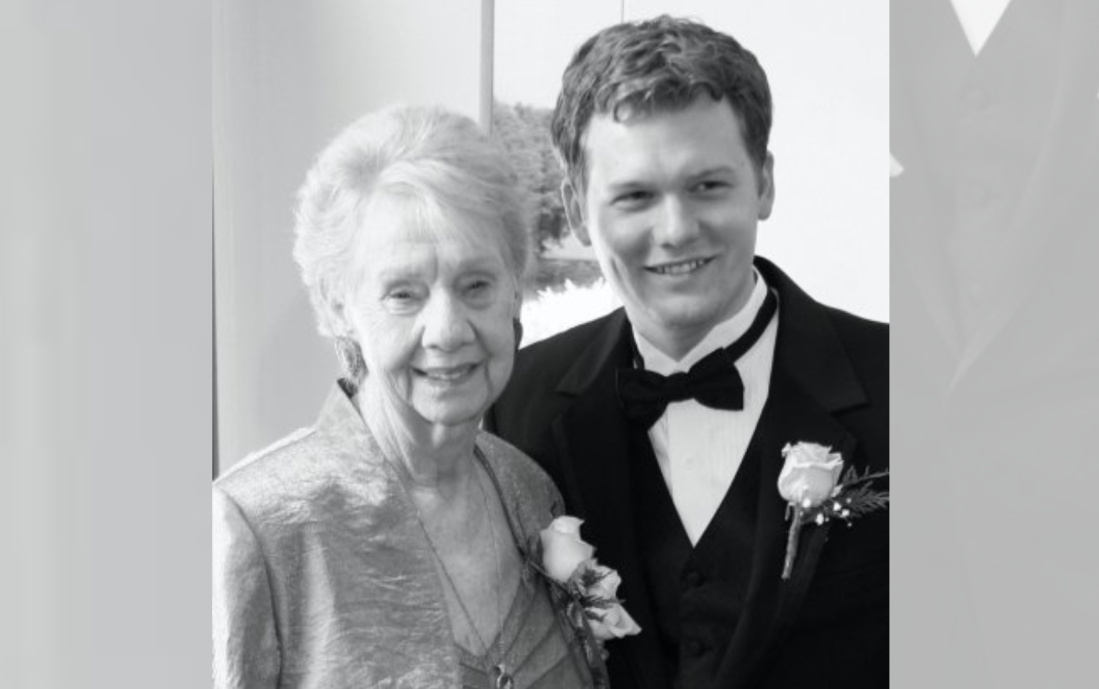
We had come back from visiting my grandparents, and I recall a phone call we had maybe a week later. I was seven years old.
Know how your parents would come ask you to “say hi” to whichever relative they had on the phone, as if you were able to have a cogent conversation with an adult? It was awkward. And because this was me, it was more awkward.
My grandparents said they missed me.
Me, being autistic me, related the best way I could.
“I remember you, but I don’t miss you.”
They kinda laughed, and I recall my parents saying, as if to emphasize for some punitive record, “Well, he remembers you.” They didn’t take me to task for that one, though I’m sure they considered calling an adoption agency or an extraterrestrial child rehoming service.
As of last week, both of my grandparents are now gone.
My grandpa died nearly 20 years ago, pretty much going to bed one night and not waking up the next. He was as sharp and clever, never having declined. Here one moment, and gone the next.
While I was shocked by the news, there just wasn’t that emotional crater I’d expected. With my grandparents living out of state, my day-to-day wasn’t as affected.
My grandma lived on for another two decades, albeit less and less so as the years passed. Until last week.
Having grown up on and around military bases and personnel, I wasn’t really accustomed to seeing people gradually decline in age, body, and mind. My most impactful memory was grandpa just *being gone* without cresting down a hill.
Seeing Grandma slide — and then hurtle — down that hill over the past 10+ years: it was a different experience altogether. One’s exit from life is not always endowed with swift, graceful passage.
When I read that Grandma died, I texted my mom back, went to work, and mostly trucked through my day.
There just wasn’t much of a reaction. That’s not because I’m autistically soulless and callous — anything but. We are creatures of routine, and we process things — even major things — through an architecture of our day-to-day. I was fortunate to have amazing grandparents, just not so much to where they were part of my day-to-day.
It’s sad that we suffer in many facets from this “difference in expectation,” but I hope to shed some light here: we are not going to react in the same emotional register as you will.
Grandma had been, in a way, long gone already.
In talking with my folks this weekend, I shared that the Grandma I knew — the one that went on LEGO shopping trips, baked English Muffin bread, took me suit shopping, taught me how to drive, and made for interesting dinnertime company — had passed long ago, and I’d made that peace and processed it already.
As I reflect, I think of my quote from earlier. I’d amend it for today.
“I remember you, and I do miss you, Grandma. I miss who you were. This is something I process differently than others do. I hope you understand. I’ll always remember you.”
This was a more personal reflection here; I would hope that it helps lend some grace and insight into how autistic people cope with loss and bereavement very differently than you may expect. To learn more about autism from an autistic person’s perspective, follow & subscribe to The Life Autistic here and on YouTube — or follow the more whimsical, spontaneous, and amusing content on Twitter / Instagram. Thanks.

Beautiful tribute for your grandmother.
Thank you.
Wow, thank you for sharing this with the world. I believe your piece really honors her, and I think it helps me understand my husband, too.
Thanks, I am glad to hear that.
I’ve been struggling with the exact feelings that you put so eloquently into language
Thank you for providing a much needed outlet
Thanks Nick; I appreciate you sharing.